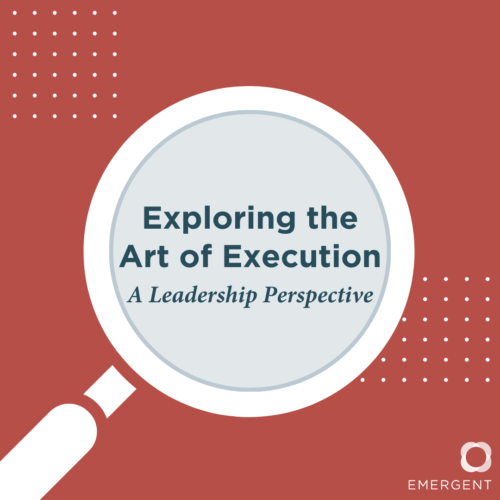In recent months, I’ve been thinking a lot about execution. The concept has recurred lately in various projects, decisions, and relationships that hold significance in my life. In fact, I’ve decided to designate execution as my focal point for the year. And the more I delve into the subject, the more I find it to be both complex and straightforward simultaneously.
The essence of execution, when explored through a simple Google search, reveals a bare-bones definition: to implement or bring a plan, order, or course of action into effect. Essentially, execution is getting something done. But is checking off an item on our to-do list the only, or even the most important, thing that matters?
A personal anecdote that brought this to life involved a conversation with my daughter, who questioned my ability to embrace stillness, linking it to a deeper reflection on value and self-worth. This interaction prompted me to consider how closely we, as individuals, often tie our sense of value to our productivity and our ability to execute in the literal sense.
The wisdom shared by my daughter, as she ventured into her school day, served as a poignant reminder: our value is not inherently tied to our accomplishments but rather to our mere existence as human beings. This perspective is crucial, especially for leaders who may inadvertently measure their worth through their output or achievements.
Reflecting on the teachings of Marcus Aurelius, I am reminded of the interconnectedness of all things and the ripple effects our actions have on the world around us. This philosophy underscores the responsibility that comes with execution, emphasizing the need for conscious action that honors our collective existence and shared humanity.
Execution, as described by Larry Bossidy and Ram Charan, focuses on the leader’s role in identifying and closing gaps between desired and actual outcomes. This principle applies universally, from corporate objectives to personal goals, highlighting the impact our actions have on others and the environment.
As leaders, our capacity to act, to close gaps of injustice, equity, and even personal relationships, is a powerful tool for positive change. Execution transcends mere tactics; it embodies the ethos by which we guide our strategies, operations, and interactions with others. The challenge lies not in achieving perfection but in honoring our commitments, recognizing the difficulties inherent in execution, and striving for excellence through thoughtful action. This approach necessitates a balance between action and stillness, ensuring that when we do act, it is with deliberate and compassionate energy, mindful of our interconnectedness and the value of every individual. Our main concern should not be what we will get out of the action, but whether the action is aligned with our deepest purpose.
Considering this deeper definition of execution invites us to rethink our approach to leadership, strategy, and the fulfillment of our commitments. It’s not just about what we do, but how we do it, and the legacy we wish to create through our actions.
I invite you to join this conversation, to share your insights, and to consider how we might collectively commit to a higher standard of execution. What are your thoughts on execution and its role in leadership and personal growth? Let’s explore this topic further and discover how we can apply these principles to achieve a more thoughtful, impactful, and connected approach to execution.
Send me an email at jeremiah@getemergent.com. I’m eager to hear your perspectives.

Comments (0)